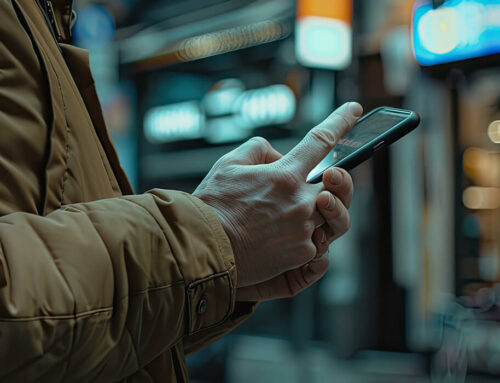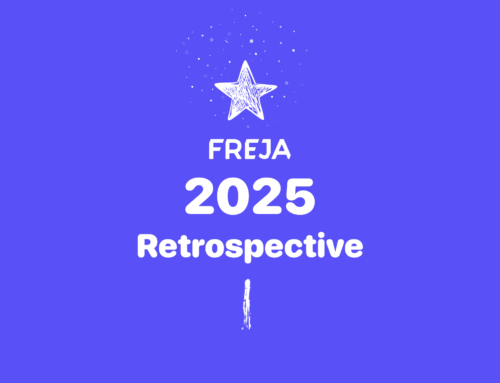Listen to the article
It is difficult to determine the exact time when TikTok’s problems began in the United States and the EU. It may have started when Donald Trump designated China as America’s main foreign policy adversary, a policy that has continued largely unchanged in the Biden administration. Serious issues may have arisen when the app, with 150 million users, encroached on the most sacred of all holy lands in America: the marketing market that until then had been dominated by Meta and Google. These tech giants did not hesitate to pour large sums of money into Congress for one reason – to ban TikTok and ensure that only American companies will benefit financially while causing psychological harm and brain damage to freedom-loving individuals.
This sparked discussions about TikTok spreading across the Atlantic, where EU institutions and several member states have already banned the use of the app on business phones. This decision seems justified. Even without the potential security threats that come with the Chinese app, it is unclear why government officials should have TikTok accounts, unless taxpayers, for the good money they pay, want to see their representatives completing the NyQuil Chicken challenge – which involves preparing and tasting chicken basted with the cold and allergy medicine NyQuil. Nevertheless, whatever challenges European bureaucrats may undertake, they are unlikely to compare to the entertainment provided by American congressmen.
The founder of Communist China, Mao Zedong, once wisely observed. “In waking a tiger, use a long stick.” As with much of Maoism, this works well only in theory. One might ask – why wake a tiger at all? A stick is just a stick by definition, and poking a tiger is not going to end well, even if the stick is as long as a pole for high-jumping. If you really have to wake a tiger, sit in armored vehicle and keep the engine running.
Naturally, the owners of TikTok reacted as if their company terms and conditions were copied straight from Mao’s Red Book. In an effort to quash harmful rumors about abusing and tracking user data, the company abused and tracked journalists’ data to compare their movements with those of ByteDance’s employees, attempting to identify the sources of information leaking to the American press.
The action, of course, spectacularly failed. Not only did ByteDance management fail to uncover who was leaking company secrets, but the story of tracking journalists also appeared in the American press, accompanied by eighty hours of audio recordings from internal TikTok meetings. The company’s management reacted in the style of another, lesser-known Maoist quote: “Comrades, let’s find out who messed up my underpants!”
He also condemned the irresponsible individuals who had shaken the public’s trust, which he had spent so long building and which was very important to him. And we know that public trust is important to him because he works for a company that has created an application where teenagers challenge each other in the noble skill of drinking Domestos.
And, what was the reaction of the American authorities?
Well, we can say that for the first time in twenty years, American lawmakers came to a consensus that crossed party lines. And that usually means one thing: when so many important people agree on something, especially if they are inspired by patriotic fervor, we can expect them to make a foolish decision. In fact, the last time Congress showed this level of unity, with 420 votes in favor and 1 against, they voted for military intervention in Afghanistan. Twenty years and 1.5 trillion dollars later, it turned out that the level of enthusiasm for entering the war was excessive. At least judging by the number of people who fell from the sky, trying to escape Kabul, clinging to the wings of planes.
The events continued to unfold as expected. The Republican majority formed a bipartisan committee that will make a decision about the future of this media platform. Members of Congress have firmly discussed the legal, security, and political aspects of the situation brought on by TikTok’s presence in America. Although most of them are people who would risk spraining their wrist, elbow, or shoulder with every attempt to swipe their phone screen. Testifying before the committee, TikTok CEO Shou Zi Chew struggled to find answers to the questions and statements of the congressmen. This is partly because his job description is not the kind of thing one would willingly talk about out loud. And also, because the questions often touched on areas that the human mind struggles to penetrate.
But where he was puzzled, we will provide answers worthy of the questions asked.
Question – Does TikTok access the home Wi-Fi network?
Answer – No, if you transfer the Internet to your phone with a bucket.
Question – Mr, would you agree that your technology is literally leading to death?
Answer – Maybe, but American teenagers still find it harder to get a TikTok account than an assault rifle
Question – Does TikTok use the phone’s camera to know which content causes pupil dilation?
Answer – Of course, and you can use it, like Harrison Ford in Blade Runner, to perform a Voight Kampff test, and determine if there are any replicants among us.
Certainly, besides the paranormal fears of technology hidden in TikTok, lawmakers have seen two problems in the presence of a powerful Chinese social network in America.
The first problem is the possibility of a foreign corporation or the Chinese government accessing the data of American citizens. ByteDance’s plan to fully localize the data of American users through Project Texas did not impress anyone. Even less impressive was the fact that China, Russia, or any other rogue actor already has platforms through which they can get to know American citizens better than their own family members do. You guessed it – these are Facebook, Twitter, YouTube, or any other social network that have grown on unregulated digital soil in America. The business model of each of these networks has always been to share knowledge about their users with anyone willing to pay for it, even when the main goal of the buyers is to destabilize American society or interfere in its elections.
The second, even greater source of concern is the mysterious algorithm by which TikTok selects content for each audience. And that fear is partly justified. The algorithms of Facebook, YouTube, and Twitter are designed to favor divisive content because the owners of these networks have long understood that this increases traffic on the networks and, of course, revenue from advertisements. With one almost negligible consequence – the erosion of the fabric of democratic societies and the bringing of once stable countries to the brink of civil war. That is why the fear of congressmen over the TikTok algorithm is somewhat understandable. In short – if we are willing to do this to ourselves, what can we expect from someone else?
So where does all of this leave us, and what can lawmakers really do if they want to minimize the devastating impact of social media on individuals and entire societies? One solution would be to implement federal data protection laws in the US, similar to Europe’s GDPR. Social media platforms would need to be legally compelled to allocate more resources to moderation, with a focus on combating disinformation and hate speech. Furthermore, regulations would need to be put in place to hold platforms accountable for the content they host, similar to the standards applied to traditional media. Restrictions on children’s screen time and age restrictions for all content offered would also be necessary. Finally, greater transparency around the functioning of social media algorithms would need to be demanded, and their impact on content curation limited.
None of these problems will be solved by banning TikTok. If we truly want better and safer social media platforms, we can only reach them through a debate among competent and well-intentioned individuals, who will have enough political influence to regulate the digital world in the interest of citizens rather than advertisers. For now, the European Union’s Digital Services Act appears to be the most comprehensive way to truly address the negative impact of social media on our societies. However, there will be no easy solutions on this path. Time and new technologies, especially artificial intelligence, will always present us with new challenges and require constant reconsideration of how we regulate the digital world.
People whose greatest technological achievement in life has been to stop searching for TV programs on a microwave don’t seem to know the way to such solutions. Their appeal to reciprocity, according to which TikTok should be banned because all western social media platforms are banned in China, will also not get us anywhere.
Simply put – we want to be a dystopian dictatorship, while you want to be a liberal democracy. Make up your mind already. Choose your lane, stay in it, and don’t waver every time the world shakes a little. The lane of dystopian dictatorships is already overcrowded anyway.







